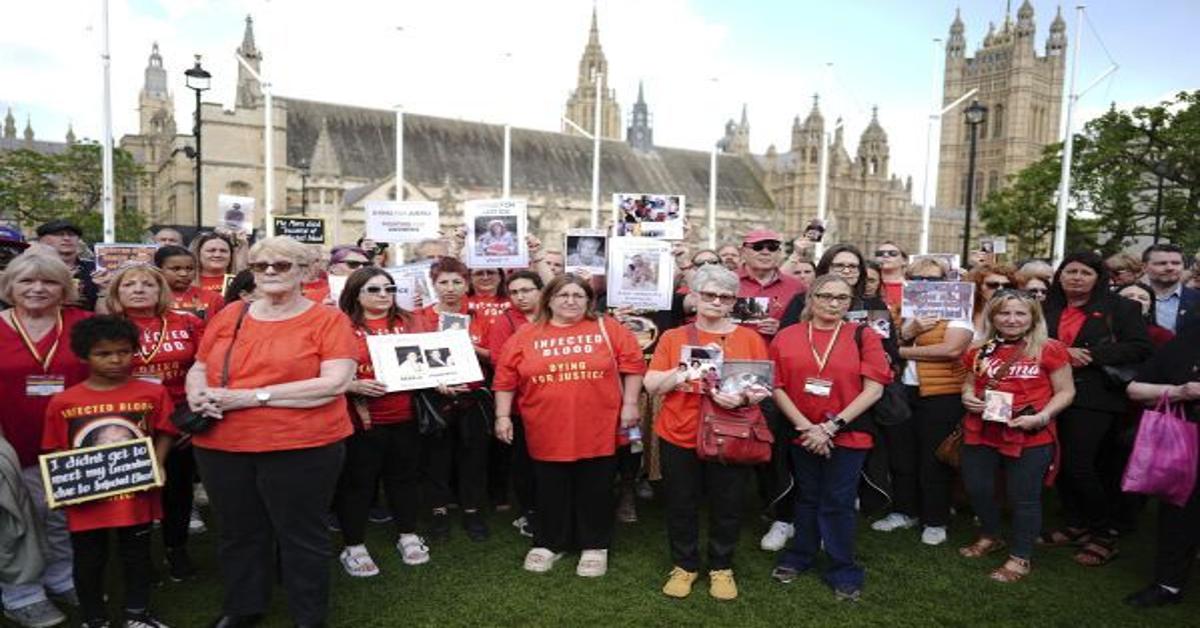
Victims of the U.K.'s infected blood scandal, in which tens of thousands were infected by contaminated blood or blood products provided by the public health service, are set to receive their final compensation payments this year, the government announced on Tuesday. Officials outlined the compensation plans following the release of a report that found civil servants and doctors had exposed patients to unacceptable risks by administering blood transfusions or blood products tainted with HIV or hepatitis from the 1970s to the early 1990s.
The scandal is considered the deadliest disaster in the history of Britain’s state-run National Health Service since its inception in 1948. On Monday, Prime Minister Rishi Sunak apologized for the “decades-long moral failure at the heart of our national life.” The report revealed that successive U.K. governments refused to acknowledge wrongdoing and attempted to cover up the scandal, in which an estimated 3,000 people died after receiving contaminated blood or blood products. In total, about 30,000 people were infected with HIV or hepatitis C, a type of liver infection, during this period. Cabinet Office Minister John Glen informed lawmakers on Tuesday that the government recognized the urgency of the situation, announcing that victims in urgent need will receive a further interim compensation of £210,000 ($267,000) within 90 days, ahead of the full payment plan. He also stated that friends and family who have cared for those infected would be eligible for compensation.
In 2022, authorities made an initial interim payment of £100,000 ($135,000) to each survivor and bereaved partner. Glen did not specify the total cost of the compensation package, though reports estimate it to be over £10 billion ($12.7 billion). However, Des Collins, a lawyer representing many victims, pointed out that numerous bereaved families have yet to receive any payments and lack information on how to claim the interim payments pledged to the estates of those who have died. The report disclosed that around 1,250 people with bleeding disorders, including 380 children, were infected with HIV-tainted blood products, and three-quarters of them have died. Up to 5,000 others who received the blood products developed chronic hepatitis C. An estimated 26,800 others were also infected with hepatitis C after receiving blood transfusions, often administered in hospitals following childbirth, surgery, or accidents, according to the report. The disaster could have largely been avoided had officials addressed the known risks associated with blood transfusions or the use of blood products. The report concluded that the U.K. lagged behind many developed countries in implementing rigorous screening of blood products and blood donor selection. The harm was exacerbated by concealment and a defensive culture within the government and health services, the inquiry added.